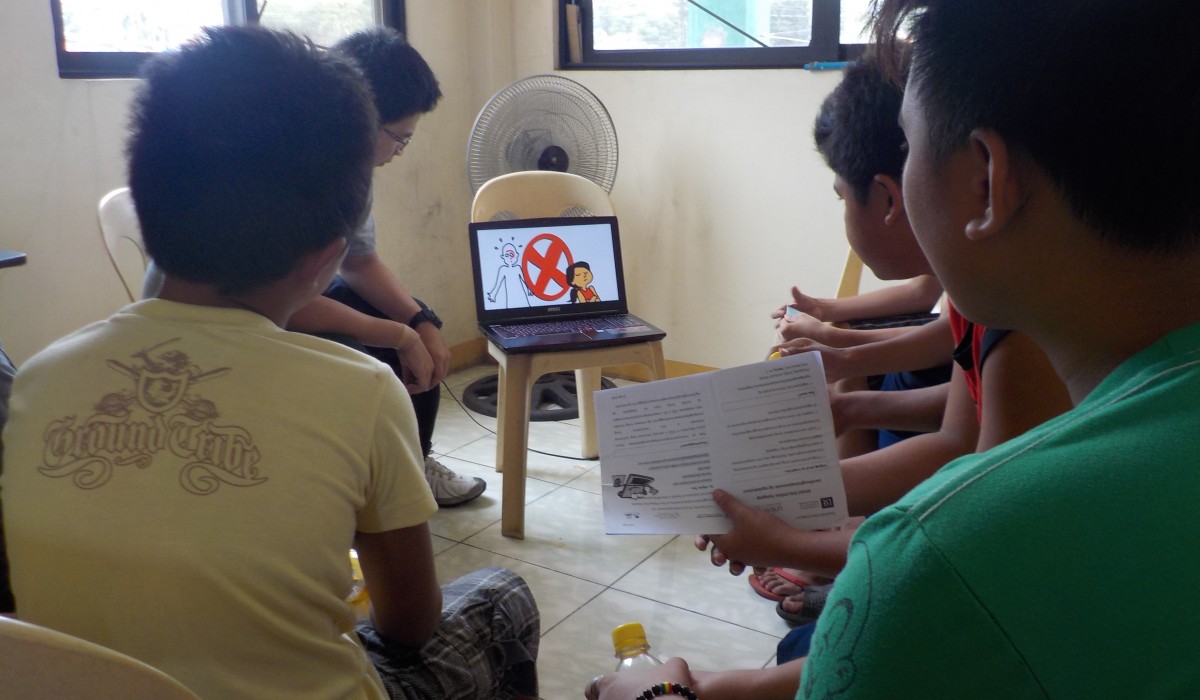The Philippines is one of the 17 countries in the UNICEF Global Programme to protect children from online sexual exploitation and in a recent publication (UNICEF, 2016) the country was described as ‘the global epicentre of the live-stream sexual abuse trade’. Driven by poverty, particularly deprived areas become ‘hotspots’ for the international trade in live-stream child sexual abuse. Child sexual abuse materials were made illegal in the Philippines only in 2009 and the legal protection and prosecution framework remains insufficient. With the age of consent still 12 years of age, the country continues to face challenges in protecting vulnerable children and prosecuting their abusers.
As part of its campaign for a holistic approach to tackling child sexual exploitation online, UNICEF funded a two-phase National Study of Online Sexual Exploitation and Abuse in the Philippines. The first phase of the study led by Anna Lena Lopez (University of the Philippines, Manila) looks at the challenges faced in four different areas: (1) the private sector, focusing particularly on the financial and telecommunication industry; (2) different agencies involved in tackling child sexual exploitation, such as the police, law-enforcement agencies, courts, and social workers; (3) cases of abused children accessed via the database of Child protection units; (4) perpetrators of child online sexual exploitation and abuse who have been convicted. This study aims to map ways of creating a more efficient and holistic approach to tackling child sexual exploitation online and to identify gaps in capacity and the need for further support.
The second phase of the study led by Merle Tan (University of the Philippines, Manila) is part of the Global Kids Online project and focuses on in-depth understanding of children’s online experiences, looking both at the risks and opportunities and their impact on child well-being.
Using the lessons learned from the Philippian context, the Global Kids Online team and a group of experts developed a survey module on child sexual exploitation and abuse which was tested during the pilot fieldwork. It aims to explore both the incidence and effects of one sexual exploitation and abuse on children’s well-being.
Further materials from this study:
Other publications by the UNICEF Philippines
Research team
Merle Tan, Consultant at the Child Protection Unit, University of the Philippines Manila
Leonardo Estacio, Professor at the Department of Behavioral Sciences and Dean of College of Arts and Sciences, University of the Philippines Manila
Michelle Ylade, Researcher at the Institute of Child Health and Human Development, University of the Philippines Manila
All resources developed by Global Kids Online, including this report, are available under a Creative Commons licence (CC BY-NC) and can be used only for non-commercial purposes and with attribution.
The preferred citation for this report is:
Tan, M., Estacio, L., and Ylade, M. (2016) Global Kids Online in the Philippines. Country Report. Manila: University of the Philippines Manila. Available from: www.globalkidsonline/philippines
Reference: UNICEF (2016) Safe from Harm: Tackling online child sexual abuse in the Philippines
Post author: Mariya Stoilova








